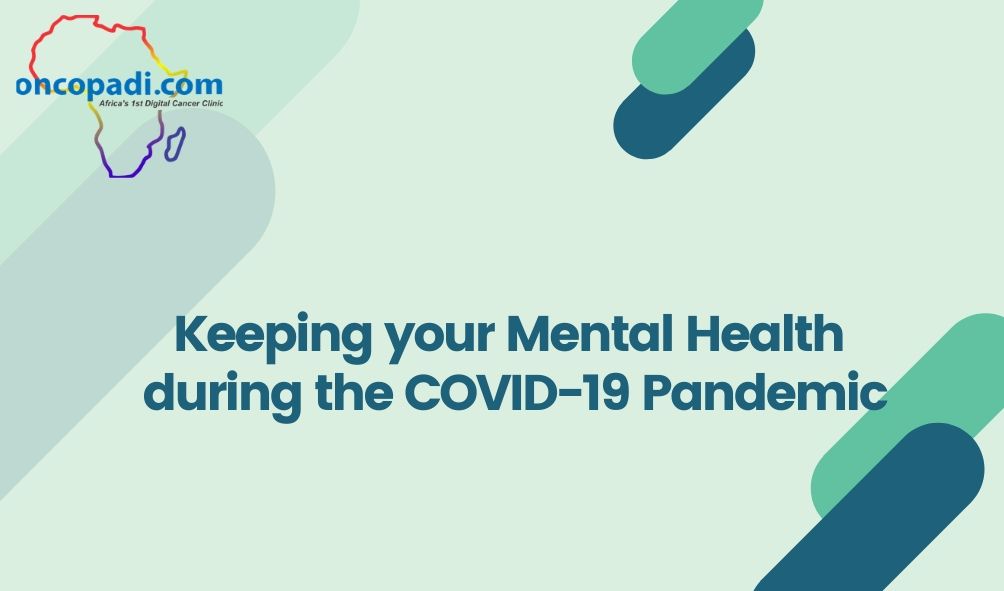Fear, Anxiety, Uncertainty. These are words that have been used to describe the past few months of the COVID-19 pandemic. This is an unprecedented time in recent history and we are having to navigate through what most of us have never experienced or even imagined. Schools, offices, places of worship and gathering have all been closed. Most of us have been confined to our homes. It is only natural in such an unsure time to feel even just a little anxious, depressed, panicked. Our mental health, now more than before, is something that we need to be conscious of and care for.
According to the World Health Organization, “Mental health is a state of well-being in which an individual realizes his or her own abilities, can cope with the normal stresses of life, can work productively and is able to make a contribution to his or her community.” By this definition, we all have a mental health to take care of, however, when we talk about mental health in our society, it seems like a faraway affliction that only affects the weak or ultra-sensitive. It is seen as a weakness to talk about having a mental health problem, but take away the word “mental” and it’s a health problem.
Understanding the importance of your mental health
As important as our mental health is, many of us don’t think about it at all. I always tell people that having a mental health issue doesn’t mean you’re depressed or have a diagnosable mental health condition. You may have had a bad day and feel a bit down, you might have lost someone or something and need to grieve and process the loss. It doesn’t always have to have a serious and “scary” label.
As a mental health advocate, I see the need to help people become informed about mental health. Why? Because when you can’t help yourself until you know how to. However, the apathetic stance that many people take regarding mental health has been detrimental to the progress that is required to properly educate the society about it.
So, what can you do about your mental health?
I am not a mental health professional, and I cannot diagnose medical health conditions as a non-medical professional. What I can do, is spread awareness about it and share the things that I know can help.
The World Health Organization has outlined as part of its COVID-19 response, some tips and advice for looking after our mental health. These tips include general mental health advice, advice for parents, older adults, and people with mental health conditions during this pandemic. Some of the tips are:
- Listen to the advice of national and local authorities.
- Keep up with daily routines and make new ones.
- Minimize newsfeeds.
- Provide support to those in your community who may need it if you are able to.
You can read the full list here.
Mental Health Resources just for You
I also suggest that you check out Mentally Aware Nigeria Initiative (MANI), the organization has a COVID-19 response that includes daily activities to help, as you take care of your mental health in this time. You can find that here. There is also a provision on the website to get help from counsellors and psychologists. Just click the “GET HELP” button at the top of the screen and fill the form that follows.
We are all hoping for this period in time to be over soon, but while we are going through it, we need to take care of ourselves.
Still, got questions or need further clarification? Please drop it in the comment box or chat with our psychologists directly. We would love to hear from you.
Until the next time, Sending you light and love wherever you are #Stay Safe“.
Loads of Love
xo xo
Oncopadi cares


